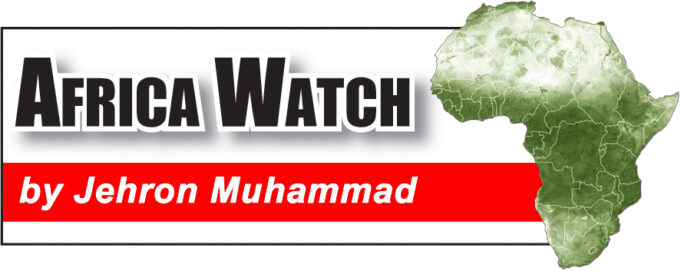Mali, Burkina Faso, and Niger recently declared a new defense pact, the coalition called the “Alliance of Sahel States.” The pact guarantees each country comes to the aid of each other in defense of their territorial integrity from internal and external aggression.
The author of the article, “A New West African Security Pact Is Bound to Fail,” posted on foreignpolicy.com, takes exception to this “pact” and suggests that it’s mostly “directed at France,” which is being forced to leave its former colonial possessions. Why there is objection to the pact, via the Liptako-Gourma Charter, is anyone’s guess.

According to wfin.com, nearly 200 French troops, 28 trucks, and two dozen armored vehicles left Ouallam military base, which was handed over to Niger. The French withdrawal of its total 1,500 troops is scheduled to be completed by the end of 2023. The U.S. has also been asked to leave.
However, on October 26 the Senate voted down a bill 11-86 that would have required President Joe Biden to withdraw U.S. troops from Niger. It would have required the president to withdraw U.S. troops from its major drone air base in the region, near southeast Agandez, reported DefensNews.com.
To justify continued neocolonial intervention, the Foreign Policy magazine article suggests, “Collectively, these states do not have what it takes militarily and economically to fight off the threat of violent extremism, let alone guarantee the sustenance of a defense pact, given the logistical technicalities involved.”

No mention is made of the fact that the region is awash with weapons and a growing insurgency, the result of the destabilization of the Sahel region due to a U.S. and France-engineered coup. The coup precipitated the overthrow of Libyan leader Muammar Gadhafi.
This destabilization spilled out into Mali’s northern desert, which became home to “terrorist groups … spreading rapidly in the region, and the Sahara is (now) awash with weaponry looted from Libya,” explained Julius Cavendish in an article titled, “Mali: Big Trouble in a Poor Country Awash in Post-Gadhafi Weapons.”
Why are coups and their aftermath being supported? According to the Organization for World Peace, there are thousands more in the Sahel region who support the recent military coups in Mali, Guinea, Burkina Faso, and Niger.
“During these coup d’états, thousands of civilians took to the streets to demonstrate their support for the coup leaders and celebrate the removal of what they describe as corrupt leaders. This has become a trend in the West African and Sahel region. In the last three years, there have been nine attempted coup d’états in the region. These coups did not come as a surprise due to the long-ignored systemic failures and growing societal discontent,” noted the Organization for World Peace.
Washington’s most recent response to the coup, published in the U.S. Senate Foreign Relations Committee press briefing, can be summed up by Senator Ben Cardin (D-Md.), Chair of the committee. He delivered opening remarks at the committee’s hearing on the implications of instability in the Sahel and West Africa on U.S. foreign policy.

“We need to lead with our values as we try to advance an agenda of good governance in the region,” said Senator Cardin. “I think we need to make our position crystal clear: military takeovers of civilian-led governments are coups. We shouldn’t mince words. And anyone engaged in coups should be personally sanctioned. The failure to sanction, a policy shift that has clearly taken place here in our government sends the wrong message.”
To give context to the senator’s less than historically accurate remarks, we go to history.com and an article titled, “10 Times America Helped Overthrow a Foreign Government,” and discover America’s long history of facilitating regime change to support its interests. In fact, throughout “history the U.S. has used its military and covert operations to overthrow or prop up foreign governments in the name of preserving U.S. strategic and business interest,” the article notes.
TRT-Afrika reported, regardless of the suggested sanctions and postponed intervention by U.S.-backed ECOWAS (an economic coalition of West African countries), “The new military alliance among the West African countries of Niger, Mali and Burkina Faso has sparked a major shift in the subregion that has the potential to have an impact not only on the importance of ECOWAS but also on the lives of people in that part of the continent.”
Follow @JehronMuhammad on X, formerly known as Twitter













